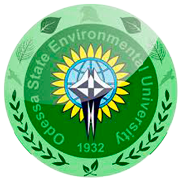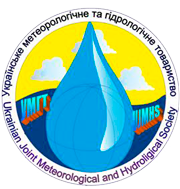Meteorological service for civil defense tasks
Abstract
The place and role of meteorological service for solving problems of population protection against the impact of natural disasters, technological accidents and modern means of destruction (fires, explosions, and terrorist actions) are considered. The shortcomings of the calculation technique and the radar method considered for computing of average wind and explosion (nuclear object accident) power are shown. The ways for solving this problem are developed. The importance and relevance of solving problems related to meteorological service for headquarters of the Civil Defense and the Ministry of Emergency Situations are emphasized, including the necessity of problem solving due to implementation of automatical data computation for meteorological service, development and installation of high-speed meteorological data processing facilities. Proposals to improve the collection, processing and analysis of meteorological and upper-air data required for prediction and assessment of radiation and biological (bacteriological) environment in order to protect the population and the troops are presented.
References
Vladimirov V.A., Druzhnik A.A., Onoyko V.Y. Highly toxic substances. Moscow, 1984. 269 p. (In Russian).
Kovylin G.D. Protection for the population and the troops against the impact of technological accidents related to emissions of radioactive and chemical substances into the atmosphere. Ukr. gìdrometeorol. ž., 2011, no 9, pp. 85-89. (In Russian).
Borovskiy Y.V., Zhavoronkov G.N., Serdyukov N.D. Grazhdanskaya oborona [Civil defense]. Moscow, Prosveshchenie. 1991. 222 p.
Egorov I.P. Guidance on practical activities for meteorological squads of the aviation of the armed forces. Moscow, 1992. 488 p. (In Russian).
Konovalov S.P., Suzanskiy A.I., Khizhko V.P. Weapons of mass destruction. Moscow, 1976. 205 p. (In Russian).
Kalitaev A.N., Zhivet'ev G.A., Zheludkov E.I. Protection against weapons of mass destruction. Moscow, 1984. 269 p. (In Russian).
Krutskіkh D.A. Teaching manual for civil defense leadership training. Moscow. 1984. 269 p. (In Russian).
Seregin V.V. Methods of calculation for the assessment of nuclear and chemical environment. Moscow, 1977. 89 p. (In Russian).
Chayko V.M. Karta ofitsera [Officer’s map]. Moscow.1985. 175 p.
Babich V.K. Aviation in local wars. Moscow, 1988. 207 p. (In Russian).
Egorov I.P. Technical means of meteorological service. Moscow, 1992. 488 p. (In Russian).
Slabkovich G.I. Manual for making observations and using data from radars MRL and MRL-2. Leningrad, Gidrometeoizdat, 1974. 333 p. (In Russian).

This work is licensed under a Creative Commons Attribution 4.0 International License.






